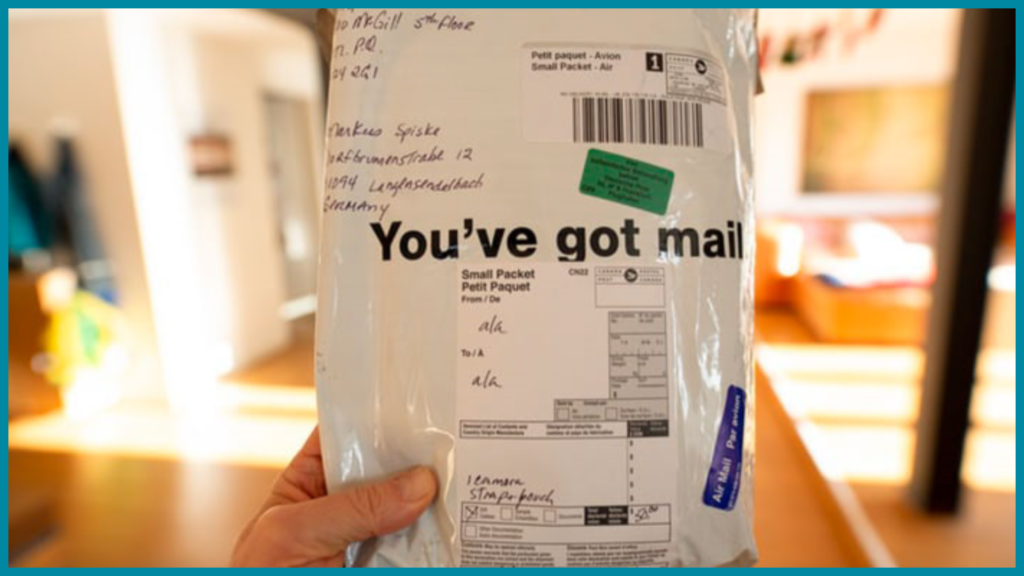
“Where is my package?” Easing the pains of courier delays
With the festive season fast approaching, so begins the researching and comparing of products, reading online reviews and trawling through different online stores to find that precious gift. After all this effort, we finally commit, buy and wait for it to arrive in the mail – except, it never comes.
The foundation of Europe’s postal services and logistics sector is built on the safe transport of goods. But according to Europe Economics, two-out-of-three Europeans who shop online have had parcels lost, damaged or arrived late in the last year. In light of this issue, companies across Europe are turning to technology like the cloud and artificial intelligence (AI) to streamline supply chains, optimize operational processes, and improve customer services and transparency to ensure no parcel is left behind.
Setting up for sending success
Moscow-based Yusen Logistics Rus is transforming how it serves customers across a number of sectors ranging from automotive and aerospace to food production. A member of NYK Group, one of the oldest and largest shipping companies in the world, Yusen Logistics Rus needed to migrate to a new warehouse management system in order to maintain its position as the leading player in importing and exporting goods into the Russian Federation.
Understanding that the cloud is an important first step towards AI adoption, Yusen Logistics Rus carefully migrated from its ageing and expensive on-premise infrastructure. Having re-evaluated its data strategy and already experiencing greater cost-effectiveness and operational improvements, Yusen Logistics Rus intends to move to a fully cloud-based environment.
“We’re increasingly finding ourselves needing to deliver more parcels, to more people and businesses, across more parts of Russia,” said Roman Stryuk, IT Department Manager at Yusen Logistics Rus. “As such, we’ve moved all our workplace collaboration tools, enterprise resource planning and analytics capabilities into the cloud. This not only delivers transparent IT cost for our users, but is also freeing up the IT team to deliver better business services.”
“It’s exciting to think about how AI and data analytics will transform our services, which is why we’ve decided to remove the complexity of our environment in terms of licensing, hardware and server costs, and administration – and go all into the cloud.”
Making sure no parcel is missed
Delivering over 40 million shipments every year, Romania’s preferred courier company Urgent Cargus is taking it one step further. With its system managing between 110,000 – 150,000 shipments at any given time and a fleet of over 2,600 courier vehicles, Urgent Cargus found itself handling millions of different requests. In such a large operation, with an even larger volume of orders to fulfill, the company needed a way to predict how much data processing and storage was required to deliver on its commitment to customers.
“We operate in an unpredictable industry. Depending on the season or festivity, we often find ourselves needing to handle a very high volume of deliveries throughout the year,” said Chief Information Officer, Marian Pletea at Urgent Cargus. “There can be as many as more than one million new requests every 24 hours, which makes it impossible to predict what data storage resource we require.”
“We also wanted to mitigate the risk of system downtime. Without the right availability, we don’t ship parcels at the right rate, nor receive the customers’ bookings, which could lead to serious business blockages.”
To address this issue, Urgent Cargus moved its customer job booking application onto the cloud and adopted a Platform-as-a-Service approach – purchasing additional resources when and if they need it. A move that gives a self-service option to customers, from booking to invoicing, as well as minimizing the risk of downtime in the event of an unpredictable peak.
According to Marian: “We recognize AI as a transformative technology, which is why we’re testing it to automate certain services to make our customers’ lives easier. This will also free-up our employees to tackle more.”
Data driving cross-border deliveries
With parcels placed into the system, sorted and distributed, companies like Budapest-headquartered Waberer’s International specialize in delivering goods and supplies over long-distances across Europe – getting packages to their destination as quickly as possible. Racking up nearly 500 million kilometres of road travel each year, the company meets demanding customer requirement with a fleet of over 4,300 modern vehicles and its bespoke logistics warehouse.
Needing to move away from hand-written notes and paper-based spreadsheets, Waberer’s International digitized its scheduling processes to better account for every journey and the over 1,000 transactions they process each day. With the help of AI, the company developed a planning platform called WIPE. WIPE uses complex algorithms to allocate drivers, load and journey schedules in the most efficient way. It’s a one-stop-shop for Waberer’s International to oversee all of their logistical operations in one place. This automated process means the business can track deliveries at all times and decide where and when resources are best placed.
In addition to driving efficiencies in resourcing and deliveries, the company has also been able to improve bottom-line performance. Thanks to the automated truck scheduling function, Waberer’s International achieved a better than an industry-average loaded ratio of 92%.
With an ever-increasing and demanding customer base, and some retailers promising same-day delivery, there’s no doubt that postal services and logistics companies face many challenges.
By digitizing processes and gleaning predictive insights with technology like the cloud and AI, these examples show how data-driven decisions make processes more efficient and customers more satisfied. Perhaps AI should be top of everyone’s wish list this year!

















